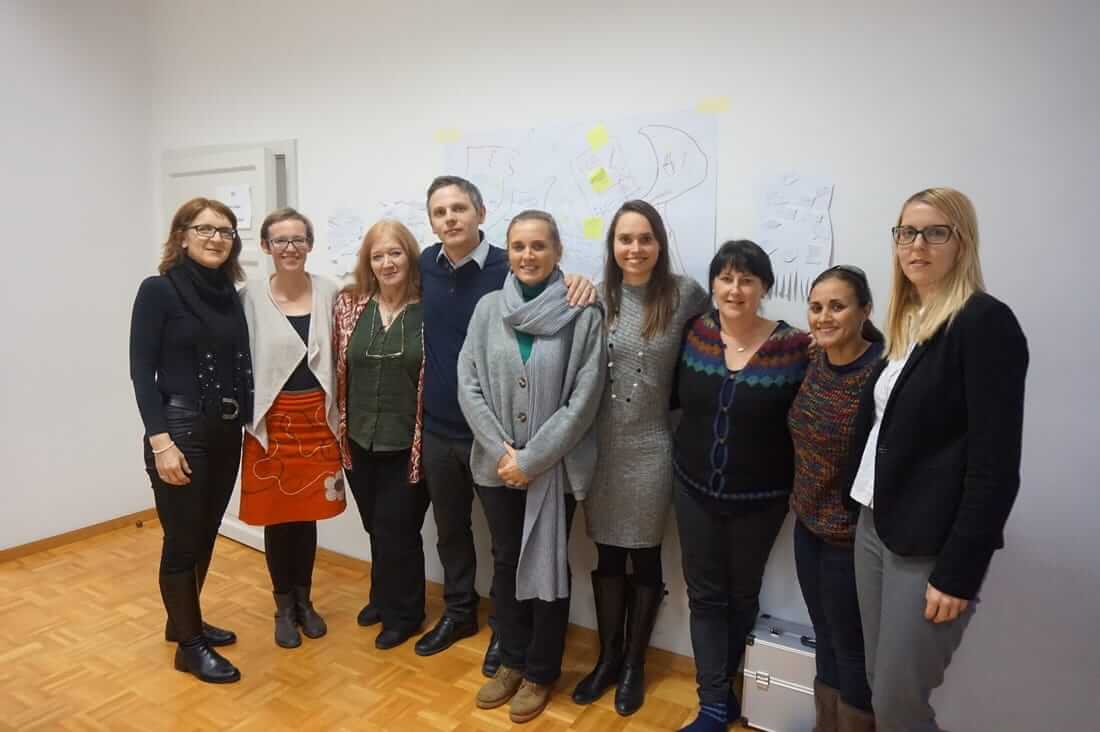|
“Stress can ruin your heart.” “Stress weakens your immune system.” “5 ways stress can ruin your relationships.” “4 shocking ways stress destroys your love life.”
These are just a few titles from magazines. We keep hearing information about the stress all the time and we think we know all about it. But do we really know? Theoretically we heard a lot, but how well do we manage it in our personal life, at work, in a classroom? Although we talk about stress often, it seems that we forget the basics of how to manage it. I like the story about a lecturer and glass of water: When lecturer was explaining stress management to an audience, he raised a glass of water and asked: »How heavy is this glass of water?« Answers called out ranged from 20g to 500g. The lecturer replied, “The absolute weight doesn’t matter. It depends on how long you try to hold it.” “If I hold it for a minute, that’s not a problem. If I hold it for an hour, I will have an ache in my right arm. If I hold it for a day, you will have to call an ambulance. In each case, it’s the same weight, but the longer I hold it, the heavier it becomes.” The same is with stress management- if we carry too much for too long, sooner or later our burdens become too heavy for us. In December we dedicate a whole week to stress management topics. Wonderful participants from Ireland, Spain, Finland and Slovenia spent the week with our caring trainers, each working in different fields and areas of expertise. Firstly, participants explored holistic stress management approach and discovered the important connection between our thoughts, feelings, body and behaviour. We tried to discover »our own patterns« and typical patterns of our pupils in stressful conditions. It is useful to remember that our stress response is not response to the actual situations but usually to the perceived threats and evaluations of actual situations. Since it all starts in mind, we may have idea to control our thoughts. But in reality it is very hard to stop your negative thoughts, but you can control your reaction on thoughts. Through “Mindfulness” we learned how to build a space of awareness so we can respond consciously instead of automated reaction. We also had a study visit to yoga centre which gave us an opportunity to put our theoretical knowledge into practice. One of the trainers also emphasized the importance of using different relaxation techniques (mindful walking, drawing and listening) in classroom. It is very important that teacher knows how to help students to gain insights into »their patterns«, how to calm the body, clear the mind, maintain emotional balance. Last part of the course was very practical. Through different exercises we tried to integrate newly learned skills, prepared our personal action plan and action plan for classroom. We had guest speaker from Slovenian school, who gave us first-hand experience with mindfulness in high school classroom. Our wonderful participants used the opportunity and integrated their knowledge into a beautiful stress management model with different »continents«. One of the participants described their work with these words: “The picture we created represents a world we would like to see. All cultures used their senses to be aware of stressors, and there are tools we can use to manage stressful events in order to live a loving and peaceful life. We can build bridges to assist each other and learn different techniques that suit each individual person and nation. Being realists we concluded that there would possibly be some, who for a variety of reasons were either just lacking in awareness or lacking the appropriate tools to build a bridge themselves. The rest of the world would never give up trying to help them, which represents the inner strength and desire people have to make things better for everyone by educating positively.” As always we haven’t forgotten about more relaxed part of the mobility experience. Together we explored December’s atmosphere in Ljubljana, celebrated St. Nicholas, drove around with KAVALIR – a special mini city Ljubljana’s vehicle, admired beautiful view of the lake from Bled Castle and much more. A very important component in the management of stress is our attitude towards the positive aspects of life. In particular, it is very important that we know how to be grateful for all the small, common moments. Therefore, thank you very much to each one of you. Together we spend so many wonderful moments and conversations that have enriched us all. The best way to sum up is with the words of our amazing participants:
|
primeraWe empower teachers so they can do their job best. Categories
All
LINKSPrimera's practical handbook for writing high quality Erasmus+ mobility projects.
Pan-European Conference on Digital Education Facebook Community. Primera's FB page. Work with us on Erasmus+ KA2 projects: STEP Institute. |
Erasmus+ by Primera for teachersErasmus+ courses by Primera are dedicated to teachers who value evidence-based and practice-driven training in highly interactive international atmosphere.
OID Ljubljana: E10091479 OID Vienna: E10298896 E: [email protected] T: +386 1 320 28 43 Privacy Policy |
Navigation |
Stay tuned! |
© 2020 Skupina Primera Ltd. All rights reserved.



 RSS Feed
RSS Feed